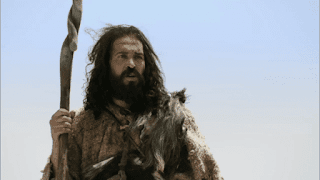The Church calendar celebrates only three birthdays:
Jesus on December 25, Mary on September 8, and John the Baptist on June
24. All three are immensely important in
the story of our salvation, which is why we honor the day each of them were
born with great joy and thanks to God.
John the Baptist was an amazing person. The story of
his birth, as told by Luke, parallels that of Jesus. There was an angel, and a name for the child
given by God, and something of the miraculous since John was born to an elderly
couple. Clearly, this was a special
child and there was great rejoicing, both at his birth and at the Visitation,
when Mary and Elizabeth praised God for all that the Lord had done for them.
John was the great prophet who prepared the people
for the coming of the Messiah. He
preached fearlessly, calling people to baptism and repentance from their
sins. When Jesus appeared, John was the
one who pointed him out as the Lamb of God, and directed all to follow
Jesus. John’s life ended suddenly
because he was faithful to his call to proclaim the truth, despite the price,
even when speaking to the great men of his day.
Clearly, God had a plan for John’s life, and his life was marked by the
humility of one who knew he was a servant of Someone greater. John was filled with the Holy Spirit, who
enabled him to remain faithful from his time of preparation in the desert to his
death in a jail cell.
Jesus said that no one born of woman was greater
than John the Baptist, yet Jesus went on to say that the least in the Kingdom
of God was greater than he. John was the
bridge between the Old Testament and the New.
His life was all about preparing for the coming of the Lord. He baptized Jesus at the Jordan, yet John
died before Jesus gave His life on the cross and John was not a witness to the
Resurrection. Nor was he in Jerusalem
for the coming of the Holy Spirit and he did not share in preaching the Good
News to the world, as the apostles and other believers did.
But each of us are witnesses to Jesus and are in the
Kingdom of God. In many ways then, we
are more blessed than John was, or as Jesus said, we are greater than John,
since we have been given a share in Christ.
We too, then, can believe that the Lord has a plan
for our life. Like John, we need to
witness to the Lord in our actions and words.
We have to put God first and to live as a servant of Jesus with humility,
as John did. Humility is not weakness. It is a strong, powerful virtue that comes
from knowing who we are and who we are not.
We are not God. We are not in
charge of our lives. We are
servants. We are children of God. We are brothers and sisters of Jesus. And like John, we need the Lord to increase,
and we must decrease. It is God’s will
we seek, not our own.
John lived a faithful, humble, powerful life because
he was filled with the Holy Spirit. We
too have received the Holy Spirit through the Sacraments of Baptism and Confirmation,
and the Spirit is eager to come to our aid any time we ask. When God asks much of us, the Lord always
supplies what is needed through the gifts and fruits and working of the Holy
Spirit within us.
It is John’s birthday we remember today, and rightly
so. But because of our place in the
Kingdom, we know that what God did through and for John, God can do for us as
well. What we need is the willingness to
be a faithful, fearless servant like John, living only for Jesus, giving all
that God asks. May God grant each of us such blessings.



